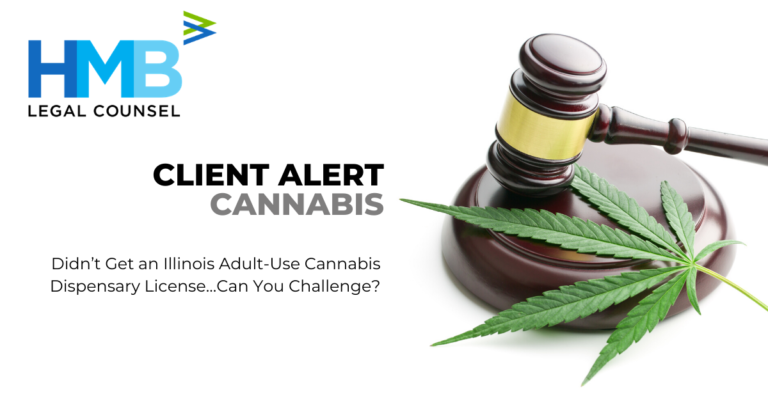While the Illinois dispensing organization conditional licenses have not been awarded yet, we are hopeful they are coming soon. That being said, here are the two questions I get asked most about the current Illinois dispensing license applications:
- Will COVID-19 cause the IDFPR to delay granting licenses on the scheduled date of May 1, 2020; and
- If I do not get awarded a license, can I challenge that decision?
Answering question #1 is just as difficult as the many other hurdles raised in our strange new world, but my guess is a delay in the awarding of conditional licenses is imminent. To date, there is no indication that additional time will be needed by IDFPR to finish reviewing and grading the 4,000+ applications and to issue the 75 new conditional licenses by May 1. But the challenges caused by COVID-19 are well-understood and it would not be surprising if IDFPR needs additional time to finalize all of the application reviews. We will know soon…stay tuned!
Read MoreAnswering question #2 is much clearer…yes. Challenging a denied application is an option. Due to the time limitations for challenging the results, and the likelihood that your application will not be awarded a conditional license (it’s just numbers, folks), it is a good idea to get up to speed on this point now.
How Do I Challenge a Denied Application?
The IDFPR is an administrative agency, thus there are administrative rules which govern its every move and process. It would be expected that challenging the denial of an application for a conditional license would first require a hearing by the IDFPR on the applicant’s claim as to why the decision was improper. Plus, the typical legal doctrine requiring exhaustion of administrative remedies would seem to apply in this situation.
The IDFPR, however, has revised that approach by rule, presumably based on the numbers of applications submitted and possibly its anticipation of a large number of challenges. By Emergency Rule, 68 Ill. Adm. Code 1291, the IDFPR specifically directs challengers to bypass the standard administrative hearings process and go straight to a lawsuit filed in the appropriate Circuit Court.
What are the Risks and Rewards?
- Filing a lawsuit:
- Circuit Court is very different from administrative hearings.More cost, more time, more rules, need of a lawyer
- This is public record and others will be made aware of your challenge.This can be both beneficial and undesirable, at the same time
- The law is new and still unpredictable. You may get insight into a potential future application for a license or you just may end up winning your challenge
- Not filing a lawsuit:
- This means giving up your rights. If others challenge and succeed, you will likely not get the benefit of those rulings without also filing your own claim
- No additional insight into the process of reviewing your application. This could be helpful to you for a future application
- Potential significant loss. In a competitive market like Illinois, the new licenses are expected to be coveted and valuable
Getting Started
Anyone considering contesting an IDFPR decision will have some analysis to do before filing a lawsuit. Review all information provided back to you from the IDFPR and the risks/rewards listed above when assessing the strength of a potential challenge. If you need help reviewing this information, please don’t hesitate to reach out to a member of our Cannabis group.
That being said, I hope that everyone reading this will be awarded an Illinois dispensing organization conditional license—and will be moving on to deal with the myriad of other important legal issues that come along with an Illinois cannabis dispensary. Good luck!
HMB Legal Counsel will continue to provide updates as the situation evolves. The ongoing issues related to the spread of the Coronavirus (COVID-19) have had and will continue to have a significant impact on individuals, families, businesses and markets. Visit our collection of resources providing guidance during these fast-changing circumstances. Please reach out to your lead team member to answer specific questions.



